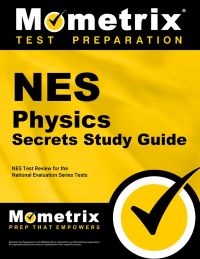NES Physics Exam
Introduction
The National Evaluation Series (NES) Physics Exam is a standardized test designed for individuals seeking to become licensed physics teachers in various states across the United States. This exam assesses the candidate's understanding and knowledge of physics concepts, principles, and methodologies necessary for teaching at the secondary school level. The NES Physics Exam ensures that educators possess the required competence to deliver high-quality physics education and inspire future generations of scientists and engineers.
Eligibility
To be eligible to take the NES Physics Exam, candidates typically need to meet specific criteria set by the state or educational institution requiring the test. Generally, candidates should have completed a bachelor's degree in physics or a related field. Additionally, they should have completed a teacher preparation program or be in the process of completing one. Some states may also require candidates to have a certain amount of teaching experience or to be currently enrolled in a teacher certification program. It is crucial for candidates to check the specific requirements of the state or institution where they plan to seek certification to ensure they meet all eligibility criteria.
Syllabus
The NES Physics Exam covers a broad range of topics within the field of physics. The syllabus is designed to evaluate the candidate's knowledge and understanding of fundamental physics concepts as well as their ability to apply these concepts in a teaching context. The exam is divided into several content domains, each focusing on different areas of physics:
- Mechanics: This domain includes topics such as kinematics, dynamics, energy, momentum, and rotational motion. Candidates should understand the laws of motion, the principles of energy conservation, and the application of these concepts to real-world scenarios.
- Electricity and Magnetism: This section covers topics such as electric fields, circuits, magnetic fields, and electromagnetic induction. Candidates should be able to analyze electrical circuits, understand the relationship between electricity and magnetism, and apply these principles in various contexts.
- Waves and Optics: This domain focuses on the properties of waves, sound, light, and optics. Candidates should understand wave behavior, the principles of reflection and refraction, and the nature of electromagnetic waves.
- Thermodynamics: This section includes topics such as temperature, heat transfer, the laws of thermodynamics, and thermal properties of matter. Candidates should be able to apply thermodynamic principles to physical systems and understand the concept of energy transfer.
- Modern Physics: This domain covers topics such as atomic and nuclear physics, quantum mechanics, and relativity. Candidates should have a basic understanding of atomic structure, nuclear reactions, and the fundamental principles of quantum theory.
- Scientific Inquiry and Processes: This section evaluates the candidate's understanding of scientific methods, data analysis, and the nature of scientific inquiry. Candidates should be able to design experiments, interpret scientific data, and understand the ethical considerations in scientific research.
Format of the Exam
The NES Physics Exam is a computer-based test composed of multiple-choice questions. The exam is designed to assess the candidate's knowledge and understanding of physics concepts as well as their ability to apply these concepts in a teaching context. The test is divided into several sections, each corresponding to the content domains outlined in the syllabus. The exam typically consists of approximately 150 questions, and candidates are given a set amount of time to complete the test, usually around three hours.
The multiple-choice questions are designed to evaluate the candidate's ability to recall factual information, apply physics principles to solve problems, and analyze and interpret scientific data. Some questions may involve interpreting graphs, diagrams, or experimental data, requiring candidates to demonstrate their ability to analyze and draw conclusions from scientific information.
To prepare for the exam, candidates are encouraged to review the content domains outlined in the syllabus, study relevant physics textbooks, and practice solving physics problems. Additionally, candidates may benefit from taking practice exams to familiarize themselves with the format and style of the questions.
The NES Physics Exam is scored on a scale, with a passing score determined by the state or institution requiring the exam. Candidates who do not achieve a passing score may retake the exam, subject to any restrictions or waiting periods imposed by the testing authority.
Conclusion
The NES Physics Exam plays a crucial role in ensuring that aspiring physics teachers possess the necessary knowledge and skills to effectively teach the subject at the secondary school level. By assessing candidates' understanding of fundamental physics concepts and their ability to apply these concepts in a teaching context, the exam helps maintain high standards in physics education. Candidates preparing for the exam should thoroughly review the syllabus, study relevant materials, and practice solving physics problems to increase their chances of success.
NES Physics Exam Study Guide
A Complete NES Physics Exam Study Guide that includes sample questions, test tips and a complete study plan prepared by a team of expert and dedicated researchers. Cost-effective and qualified exam help from a committed exam preparation company.
NES Physics Study Guide (printed book)

